A must-read for DX promoters! Get your e-learning in place first!
A must-read for DX promoters! Get your e-learning in place first!
Tatsuno Information Systems, recklessly.Zero IT knowledgeMy name is Yoda, a member of the Tokyo team that joined us at Lately, the term Digital Transformation (DX) has been appearing more and more often on the Internet and in books.
I have a vague understanding of the concept of DX, but I have to ask myself, "What's the difference between it and conventional IT applications? Why is DX being promoted in Japan now? For those of you who are wondering what to do!
In this article.The latest IT trendsFrom theDigital Transformation.Some of the terms may be familiar to those who work in the IT industry, but please bear with me.
Content
- 1. what is digital transformation (DX)?
- 2. the relationship between digitization and digitization
- 3. start promoting DX by implementing e-learning training!
- 4. Summary
What is Digital Transformation (DX)?

Have you ever heard of Digital Transformation (DX)?
As someone with "zero IT knowledge," this is the first time I've learned about it. When I looked up this term, I found out that it is a concept that was proposed 15 years ago by Professor Eric Stolterman of Umeå University in Sweden. It's about.'IT penetration is changing people's lives for the better in every way'He advocated that.
In other words, it is described as "transforming the corporate culture, organization, and constitution to be able to respond to business and social changes with a sense of speed using IT (digital, data, etc.)". Change...? Change...? It may not ring a bell.
To summarize the term here briefly, DX is the concept of creating new value in existing business processes and business models by leveraging new digital technologies such as the cloud, IoT, AI, and big data. Specifically, it is as follows
The DX Approach
Companies are being asked to break away from their existing businesses and create new value by leveraging new digital technologies, showing that DX is not just about transforming products and services, it's about changing the culture of a company and the readiness to tackle it.
The following is an introduction to the approaches of companies that have successfully implemented DX.
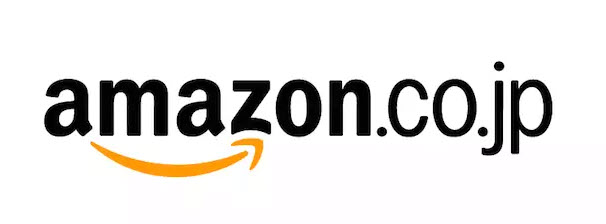
Have you ever heard of a company called Amazon? There are few people who don't know the name Amazon, one of the largest internet retailers.
Amazon is cited by the majority as a 'fast and disruptive (transformational) company'.
Amazon was founded in 1994. That was before "Windows 95" was released. Originally, Amazon began as an online bookstore, but it has seamlessly transformed a variety of business operations into IT and IT into business.
As Amazon continues to expand its customer interface, both online and in the real world, by putting the customer first, it's important to understand the nature of digital transformation for the future. The point is that the company itself continues to transform, and Amazon has been so successful that it is considered a model of DX.
The Relationship Between Digitization and Digitization
The terms digitization and digitalization are also used to describe digitalization, and I think these two are easy to understand if you think of DX as a goal and one of the steps to get there.
While there is a big difference between the two terms - topical and panoramic digitization - the underlying idea and goal is the same. The names are confusing, so be careful not to get confused as to which is which. Here's an explanation of the difference between digitization and digitization.
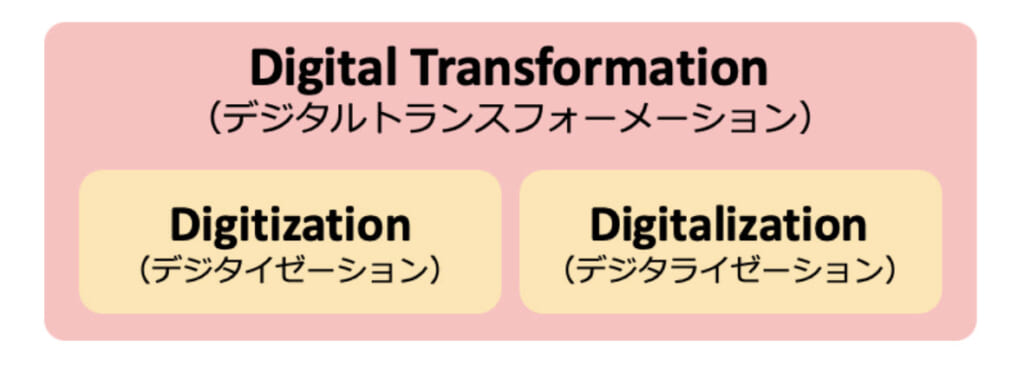
digitization
Digitization is often described as the use of digital technology to improve efficiency, streamline and add value to business operations, or in other words, "digitalization".
For example, converting paper-based customer lists into a database, or using Robotic Process Automation (RPA) to replace the massive amount of manual copy and paste work that used to be done by humans. The goal is to digitize the company's business processes through the use of digital technology to increase operational efficiency and reduce costs.
digitization
Digitalization is the use of digital technology to create new value and profit. In other words, digital transformation (DX) can only be tackled if digitalization is possible. Digital transformation (DX) requires digitalization.
Digitization: Refers to localized improvements that digitize analog equipment and information.
Digitization: Refers to improvements that create high added value for the entire organization by digitizing processes and other aspects of the organization.
Digital transformation: Refers to the transformation that utilizes digitization and digitalization to create innovations that impact society and the economy.
Let's start promoting DX with the introduction of e-learning training!

Today, the cloud, artificial intelligence (AI), the Internet of Things (IoT), and a variety of other digital technologies are evolving, and many companies are starting to move toward the realization of DX. Recently, more and more companies are shifting from analog to digital training by utilizing e-learning for their internal training and new employee training.
E-learning is now gaining a lot of attention as a new form of learning that is changing the future of training and education. By utilizing digital technology, employee training can be conducted efficiently and effectively, and plays a major role in the growth of a company.
Organizations with a lot of paper and documents are definitely less productive.

Converting your training materials to digital content makes it easier to create video materials. The benefits of going paperless are not just a reduction in the amount of paper used. By seeing the actual scene and operation of the training material, it is possible to understand intuitively the content that is difficult to understand only with words and materials.
Many paper-based materials are used once in training and are rarely read back. By storing digital content in a device, you can quickly refer to it when you find something you don't understand and review it at the time you want to, without worrying about what others think.
learningBOX has all the features you need to make your digital transformation a reality!
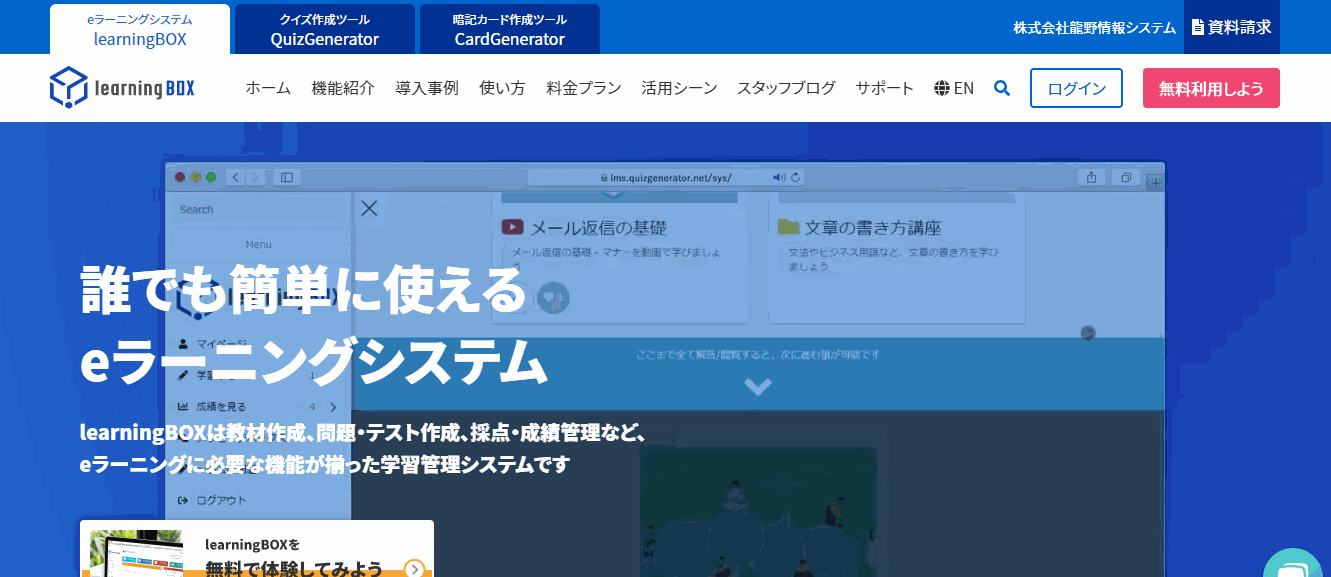
learningBOX is an LMS that has been implemented in a variety of industries and sectors.
Click here to read about learningBOX case studies

The University of Tokyo Disaster Preparedness Training Center ⇒Developing human resources who can act in the event of a real disaster by applying systematic knowledge of disaster countermeasures
Wants Japan Co.Providing "learning to live and learning to use".
Summary
In this article, we've introduced you to some of the latest IT trends: digital transformation. We hope that we have helped you add a little bit of IT knowledge about Digital Transformation (DX) to your IT knowledge.
With the evolution of AI, the spread of 5G and IoT, the digital environment is rapidly becoming more and more sophisticated. Now is the time to get in on the DX bandwagon. That's all for this issue! I hope you'll stay with me next time.
Reference material: The Latest IT Trends in one picture Book: SAITO Masayoshi
- Effective for training transfer! What is e-learning?
- [Important] From version 2.12, the report function was modified.
Comment ( 0 )
Trackbacks are closed.
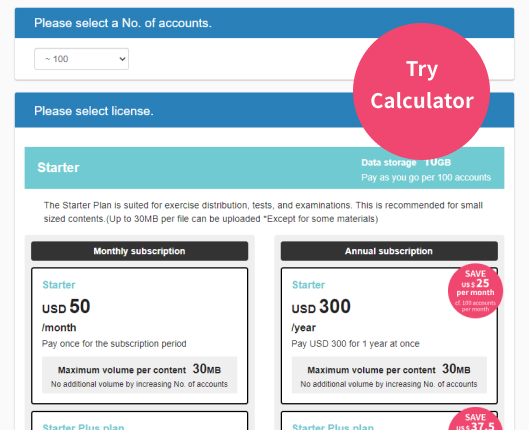

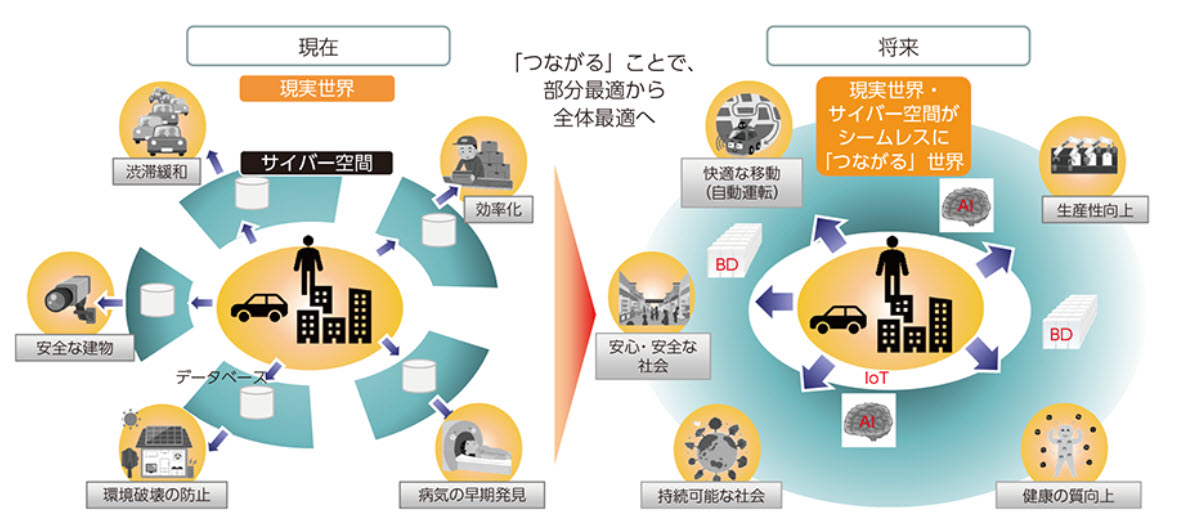 Source.
Source.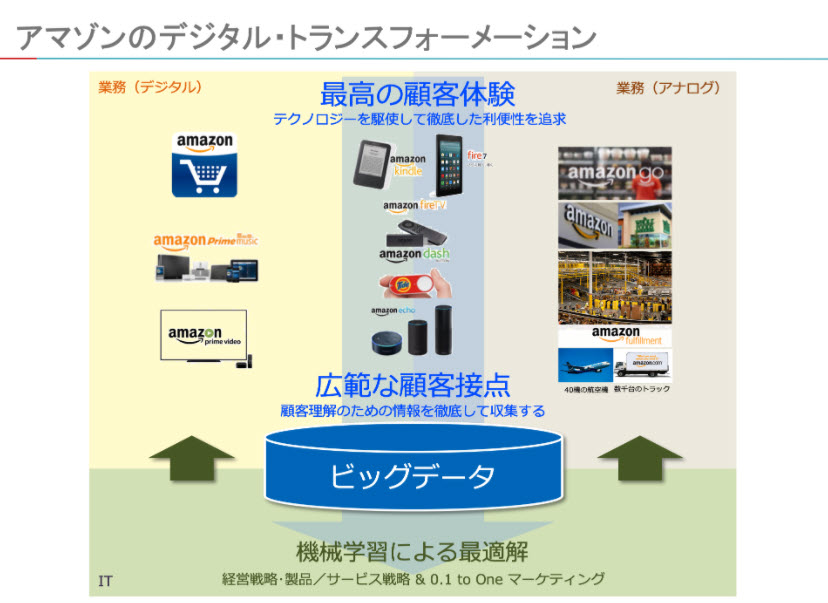 Source.
Source.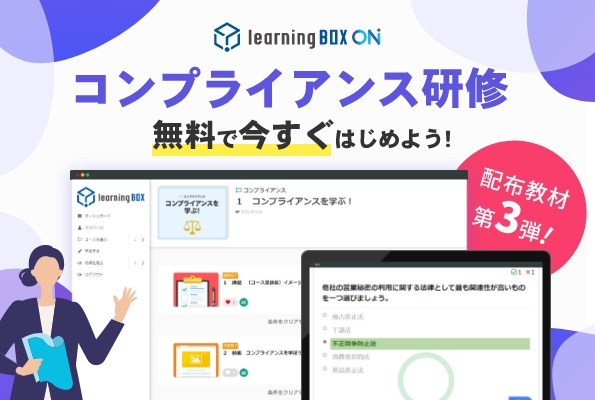

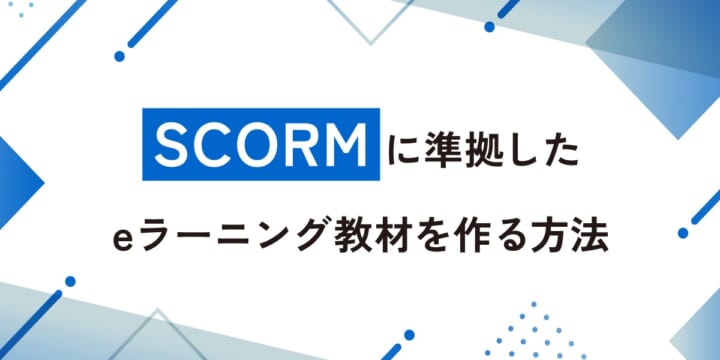
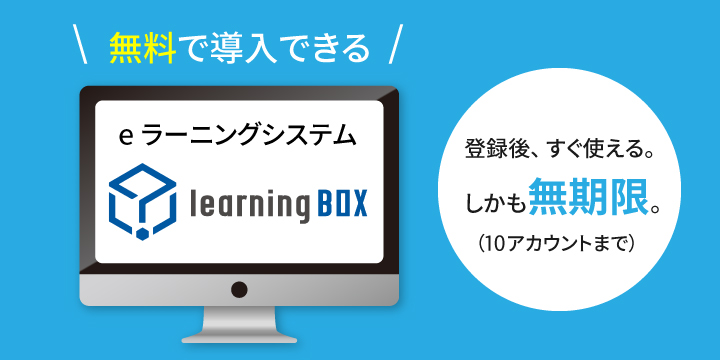


No comments yet.